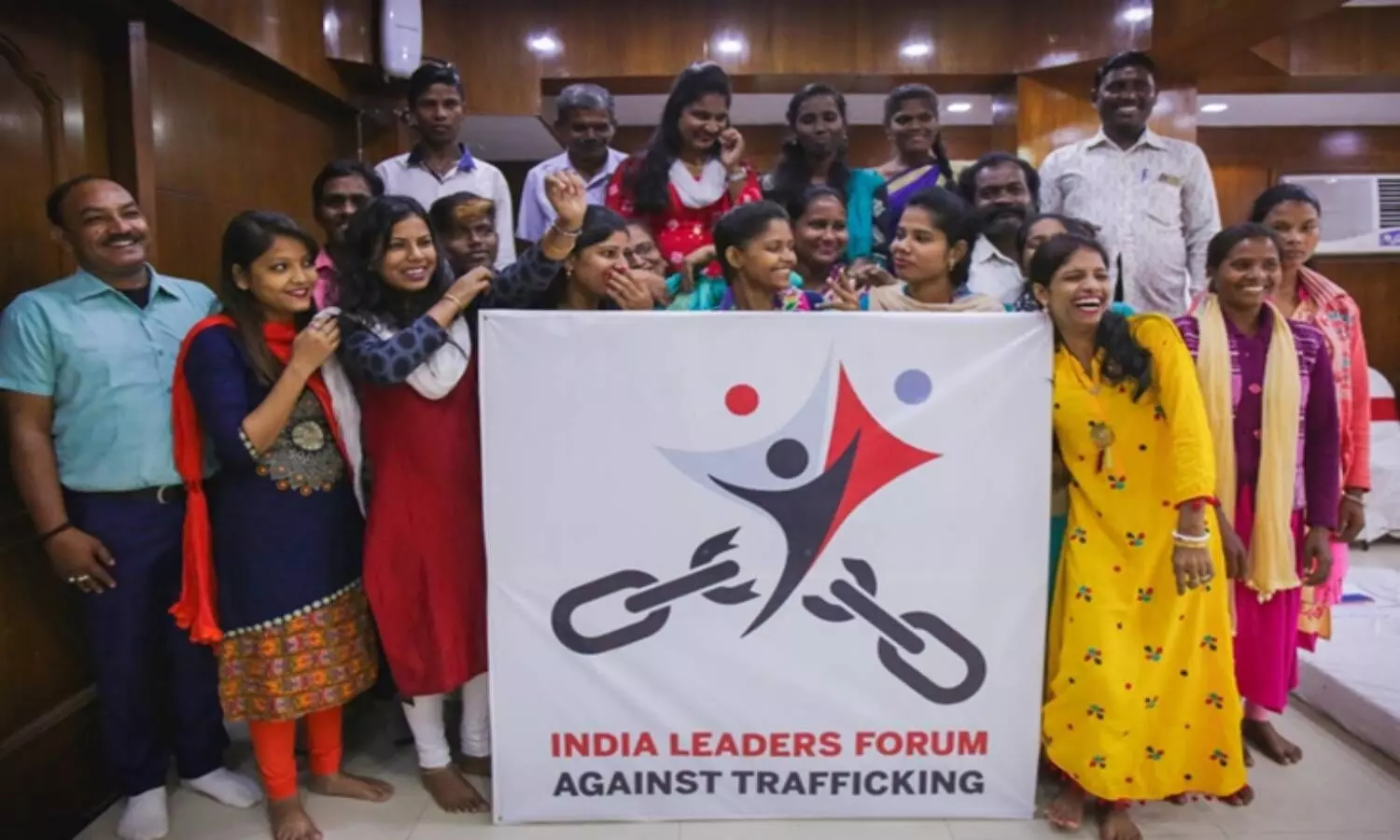India's first coalition of human trafficking survivors aims for systemic change
In 2015, 15-year-old Laxmi (name changed) from a village in Addanki mandal of Prakasham district in Andhra Pradesh was a student residing in a hostel in Ongole of Prakasam district.
By Sumit Jha
Hyderabad: In 2015, 15-year-old Laxmi (name changed) from a village in Addanki mandal of Prakasham district in Andhra Pradesh was a student residing in a hostel in Ongole of Prakasam district.
Each Sunday, she used to visit the market where she met a woman with whom she became friends eventually.
"One fine day, I went to her place in her car. In her house she offered me snacks and drinks after which I fell asleep," narrated Laxmi.
Next morning, she woke up to find the woman handing her over to a strange woman and taking money in return. "I cried and asked her to drop me at my home. She convinced me saying that that woman will drop me home as she knew my father. She gave me some milk which I drank and slept off. Next morning when I woke up, I saw bruises all over my neck and thigh and I was in pain," said Laxmi.
This woman handed me over to an auto driver saying that he will drop me home. But that old man took me to a field, where he beat and raped me," said Laxmi.
On the way back, she saw some police personnel and alerted them by screaming at them from the auto. The police personnel rescued her and sent her to a HELP home.
Society for Helping Entire Lower and Rural People (HELP) is a developmental organization committed to the protection of women and children from violence, sexual exploitation, abuse, and trafficking.
Laxmi stayed there for four years and later returned to her own home. Now, she married and has been working for an NGO that helps sex workers advocates against the trafficking of women.
"Laxmi's case is not the only one. The reported number of trafficking cases with the National Crime Records Bureau shows only 15,379 cases, which accounts for less than 1 per cent of the actual cases that happen which is estimated to be around four million. While less than 1 per cent of total human trafficking victims are reported, 64 per cent of them are investigated and only in 1.4 per cent of the reported cases conviction is reached," said Ram Mohan, director, HELP.
From registering a police complaint to getting legal support to rehabilitation, the road to justice and a dignified life for the survivor of sex trafficking is strewn with deep-rooted social stigma and systemic harassment.
Laxmi, has not yet gotten her compensation and had to stay at a HELP home for four years due to legal negligence.
"The government issues several GOs to help trafficked persons but every order remains on paper. The survivor needs compensation which the government is failing to provide," said B. Bhaskar Rao, programme manager, HELP.
To address this, 2,500 survivors have come together to form the Indian Leadership Forum Against Trafficking (ILFAT), India's first coalition of human trafficking survivors which aims to affect change at a systemic level.
ILFAT is a national platform by the survivors and for the survivors of human trafficking.
"We have come together from different parts of the country to achieve a shared vision of having a nation free from all forms of human trafficking. ILFAT is committed to rebuilding the lives of the members and wants to be considered stakeholders in the decision-making process. For long, these decisions have been made without consulting them and understanding their life experiences," said Ram Mohan,
Ram Mohan added that the members wish to play a participatory role in policy formulation, since these laws and policies are about them and they cannot and should not be without them - both their voices and participation.
ILFAT is doing a crowdfunding campaign with Milaap to raise funds for the organisation.